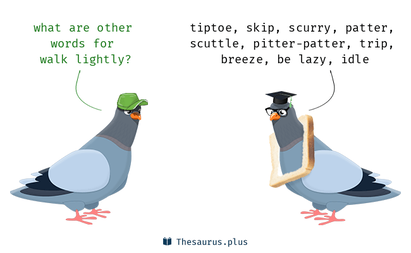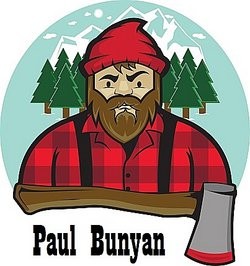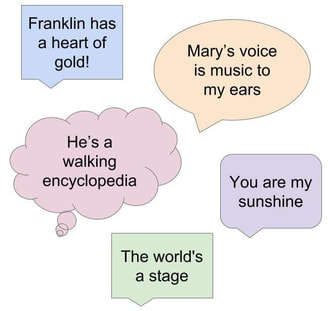 A well-chosen VERB can convey a wealth of description, making them the perfect addition to your descriptive writing toolbox. Are you battling with word count, as with picture books or college essays? Or is your writing style without extra fluff? If so, join me in celebrating the descriptive power of VERBS. Consider this simple sentence: Maria walked to the store. What do we know about that walk? Maria arrived. Period. Now let's substitute four jazzier VERBS. How has our belief about Maria's trip to the store changed? Maria skipped to the store. Maria is happy, youthful, and carefree. This trip to the store is a treat for her. Maria trudged to the store. Going to the store is a chore for Maria. Shoulders slumped, it's a struggle for Maria to place one foot in front of the other. Maria marched to the store. Maria is a woman on a mission, walking with great purpose and precision. She did not stop and smell the roses on the way. Maria limped to the store. Oh no, poor Maria. This trip can't be easy at all. She must really need something at that store: crutches, medicine, or cat food perhaps. A thesaurus has forever been my faithful writing partner. Just make sure you understand the nuances between each given synonym. If in doubt, check your dictionary. Fortunately, we now have online sources to augment the physical standards: Dictionary.com/Thesaurus.com is my current go-to source. So go ahead and find some powerful VERBS to spice up your writing! I hope you enjoyed this spoonful. Happy writing! I'll return with a new post next Sunday. Be well, Laura Fineberg Cooper A Spoonful of Grammar
2 Comments
 With HYPERBOLES, don't believe everything you hear or read. This descriptive writing technique means using outrageous exaggeration to drive home a point or entertain readers. The more absurd HYPERBOLES are, the more likely they are to draw a laugh - or at the very least, an eye roll or grin. Stay tuned for four examples plus a quote from the ultimate example of HYBERBOLE. (P.S. This image is a very big, or should I say very tall, hint!!) This book has ten million pages! Do I have to finish it by tomorrow? I'll be completely gray by the time you finish eating. (That sentence isn't quite the exaggeration it would have been prior to the COVID-19 quarantine.) That spider was bigger than a cat! It had longer fangs, too! The music was so loud, it blasted eardrums all the way from Connecticut to the Canadian border. For the ultimate example of HYPERBOLE in writing, look no further than the enduring Tall Tales about Paul Bunyan and his blue ox named Babe. This quote hails from a 9/23/16 NY Times article (In an Era of Hyperbole, Paul Bunyan is as Tall as Ever) by Dan Barry: "Bunyan existed in a world so cold that spoken words froze in the air. He was at least six ax handles tall, and spoke with such force that limbs fell from trees when he called his men to dinner. He once sneezed so hard from a pinch of snuff that he cleared all the timber for 11 miles. And he was so thorough a logger that he turned the Dakotas into prairies." I hope this post encouraged you to give HYBERBOLE a chance in your own writing! I'll be back next Sunday with a brand new Spoonful of Grammar. Sincerely and best wishes for your continued health and safety, Laura Fineberg Cooper  You may think I'm kidding when I call metaphors magical, but I assure you, I'm quite serious. While they may be difficult to master, they possess the power to turn one thing into something completely different. While similes relate one person or object to another with the use of like or as, metaphors equate instead of relate! Here are some examples: Stanley is a bear when he gets hungry. (Stanley = bear) Tom is a walking dictionary about every conceivable baseball fact. (Tom = walking dictionary) This movie is a snore. (movie = snore) Maria is a ray of sunshine on a cloudy day. (Maria = ray of sunshine) My first car was a lemon, but I didn't know about the Lemon Laws. (my car = lemon) Henry is the Energizer bunny, hopping from one activity to another before he powers down. (Henry = Energizer bunny) Go ahead and sprinkle some metaphor magic into your stories! As with similes, if you can turn your characters into things that relate to their passions and interests, all the better. I'll return next Sunday with another descriptive language spoonful. Sincerely, Laura Fineberg Cooper |
Welcome to
|
 RSS Feed
RSS Feed
